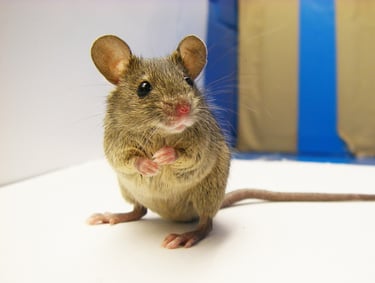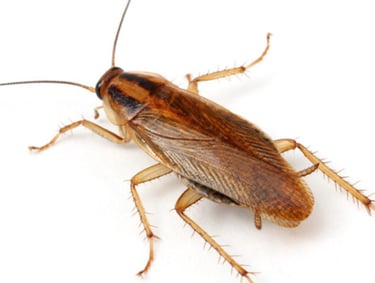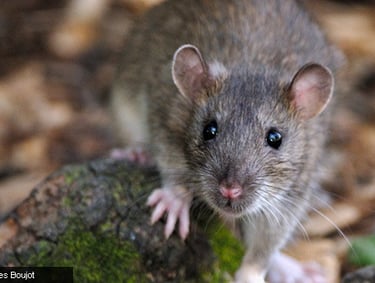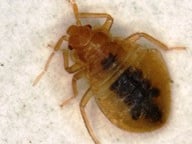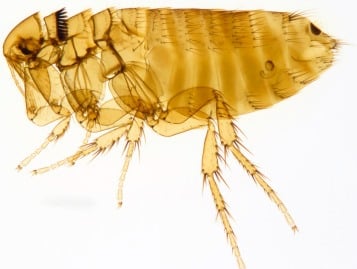
Montreal Pest Guide - Identify Your Pest
We Specialize in Bedbugs, Cockroaches, Fleas, Ticks, Mites and Rodents. Leaders in Pest Management for Homes and Businesses.
Greater Montreal Area - Laval - Longueuil - Laurentians - Gatineau
Cat Flea
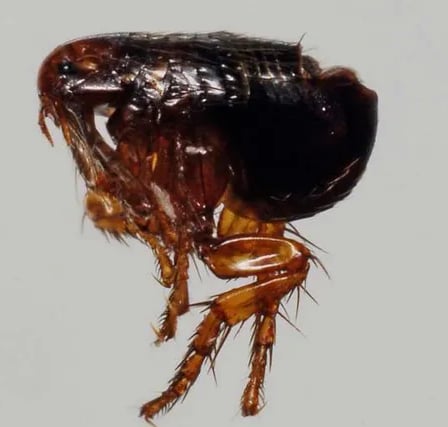

Scientific Name:
Ctenocephalides felis
Also known as:
Common flea, domestic cat flea, pet flea
What Are Cat Fleas?
Cat fleas are small, wingless insects known for their jumping ability and their parasitic nature. While named after cats, they are opportunistic feeders that infest dogs, humans, and various wild mammals. Adult fleas live off the blood of their host and reproduce rapidly under suitable conditions..
Global Context
Ctenocephalides felis is the most common flea species globally. Believed to have originated in Africa, it spread alongside domestic cats to all inhabited continents. Today, it thrives in warm, humid environments, particularly indoors with access to pets and carpeting.
Quebec Context
In Montreal and surrounding areas, cat fleas peak during warmer months but remain active year-round indoors. Infestations are common in households with pets, especially if routine flea prevention is not maintained. Apartment buildings and shared green spaces are hotspots for spread.
How Cat Fleas Infest Homes
Hitch rides on cats, dogs, raccoons, or rodents
Lay eggs in pet bedding, carpets, or upholstery
Larvae develop in shaded, protected areas indoors
Adults jump onto passing hosts to feed
Thrive in high humidity and moderate warmth (21–30°C)
Why Cat Fleas Are a Problem
Persistent biting causes itching, hair loss, and dermatitis in pets
Humans may suffer from allergic reactions to bites
Flea dirt (feces) stains furniture and bedding
Infestations can become unmanageable if untreated
Vectors for tapeworms (Dipylidium caninum) and Bartonella (cat scratch fever)
Reproduction Rate
1 Day:40-50 eggs laid per female (begin reproducing witin 24 to 48 hours of their first blood-meal)
1 Week: 200-350 Eggs/larvae/pupae at different stages, first adults emerging
1 Month: 100 000 + Adults and 1.2 million eggs. Rule: For every detecte Flea, there are 1000 eggs.
Parasites & Cross-Infestation Risks
Flea → Tapeworm: Ingested by pets during grooming
Flea → Bartonella: Bacteria transmitted between cats and humans
Flea → Murine typhus: Possible in areas with coexisting rodent fleas
Why Hire a Professional
Flea sprays and store-bought foggers rarely address the full flea lifecycle. Eggs and larvae hidden in carpets and cracks can re-infest homes weeks later. A professional exterminator will: Inspect infested areas and pet zones. Use targeted treatments that kill adults, larvae, and eggs. Recommend humidity control and flea prevention protocols for pets. Follow up to ensure full eradication.
Montreal Pest News:
Scientific Research:
Hopping species and borders: detection of Bartonella spp. in avian nest fleas and arctic foxes from Nunavut, Canada
https://parasitesandvectors.biomedcentral.com/articles/10.1186/s13071-020-04344-3
The geography of pet parasites is changing
Ctenocephalides (felis) felis (cat flea) Ctenocephalides (felis) canis (dog flea)
https://wcvm.usask.ca/learnaboutparasites/parasites/ctenocephalides.php

